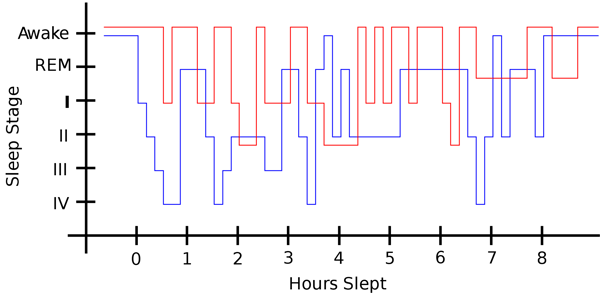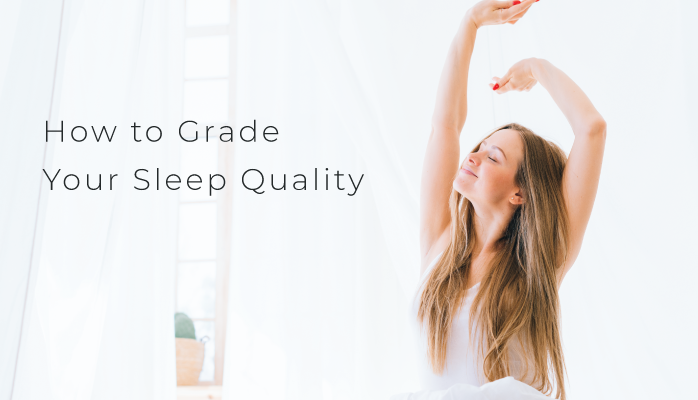Sleep Quality vs Quantity
What is your sleep GPA? No that is not a typo. Your sleep grade point average. This measurement matters to us for most things, but for some reason when it comes to sleep, we generally only report on how many hours we got the night before. Sleep is much more complex and nuanced than this, and it's important to take a closer look.
Sleep is essential to the body. During sleep, the body has a chance to repair, prune and strengthen neural connections, reduce inflammation, and a whole host of other important bodily functions. Without it, people wouldn’t be able to function. It occupies approximately 1/3 of a human’s life, so even just as a percentage, sleep is extremely important.
When asked how they slept, people often respond with a statement about how many hours of sleep they got. Like many things in life, quantity doesn’t capture the whole picture. Sleep is no different. Keeping tabs on how many hours of sleep per night is a great place to start when taking inventory, but it doesn’t capture some of the most important aspects of sleep.
Overlooked Aspects of Sleep
Some aspects of sleep quality that are often overlooked include:
- Number of times awakened in the night
- Number of REM cycles
- Heart rate and heart rate variability (HRV)
- Body temperature throughout the night
- Amount of movement during sleep
These aspects can indicate how well or poorly a person has slept, in a more nuanced fashion than simply tracking hours slept. Number of times awakened during the night, for example, has a major bearing on how rested an individual will feel upon waking up for the day.

Here's an image of someone with normal sleep (blue) vs someone with a sleep disorder (red) - the difference is huge!
We have all had the experience of waking up and feeling dead-tired, or of waking up lightly with ample energy. What isn’t common knowledge is that the experience of waking up in the morning is strongly connected to the timing of sleep cycles. If your alarm goes off in the middle of deep sleep, for example, your body has a lot more to overcome the feeling of tiredness than if you wake halfway through a light-sleep cycle. Tracking sleep quality and sleep cycles is an easy way to improve energy levels upon waking up, as well as facilitate more restorative sleep habits.
Signs of Each Grade of Sleep
Below is the grading scale so you can rate your own sleep:
A – 4.0
- quiet but with slight calming noise (like white noise machine)
- no lights, blackout curtains
- cool air temp
- perfectly comfortable, clean bedding
- well established night-time routine
- essential oils or aromatherapy for calm environment
- no screen time in late evening
- phone off, or silent with wifi/bluetooth disabled
- no strong wifi signals in room
B – 3.0
- pretty quiet, does not disturb your sleep very often
- very little light in room
- semi-cool air temp in room
- bedding is adequate for sleep, but could be better
- little or no wifi signals present in room
- limited alcohol, coffee, nicotine consumption in evening
C – 2.0
- unwanted ambient noise (loud traffic, loud neighbors, dog barking, etc.)
- multiple artificial light sources in room
- warm air temp
- uncomfortable bedding, sheets, pillows, etc
- some supportive bed-time routine, but could be improved
- moderate alcohol, coffee, or nicotine consumption in evening
- screen time just prior to bed, with no blue-blocking glasses
- phone on silent, but close to bed, with wifi and bluetooth enabled
D – 1.0
- environmental noise wakes you at least once per night
- multiple artificial light sources in room
- warm air temp
- uncomfortable bedding
- no consistent bed time routine
- poor management of screen time prior to bed, phone alerts on in room
- alcohol, food, coffee, nicotine consumption too close to bed
F –0.0
- Noisy to the point of waking you several times per night
- far too warm to sleep well, wake up sweating several times per night
- ate high carb food prior to bed
- drank alcohol just prior to bed
- coffee or tea in evening
- bed is uncomfortable
- phone used until late at night, placed under pillow with sound on for alerts
- strong wifi signal in room
What Was Your Sleep Grade?
If you had to give yourself one grade, what would it be? This process helps identify which aspects are very important for supporting quality sleep, and which areas could use a tune-up.
Maybe your environment for sleep is spot-on, but your routine is not supportive. Or vice versa. Check out your grade, and see your current sleep GPA. If your sleep GPA is low, then please click the orange button below to take a free online sleep test and talk with one of our sleep health experts.


